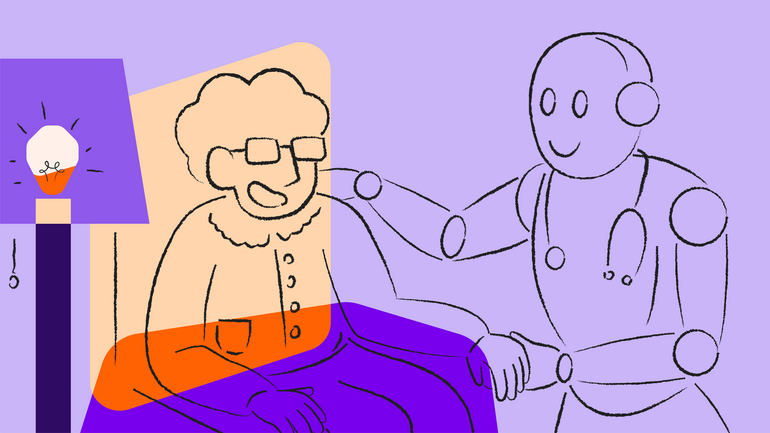Based on American pragmatism, we examine what happens when measures aimed at intensifying patients' involvement, self-dependence and responsibility meet care practices. We are particularly interested in exploring the use of care robots, AI, monitoring systems, lifting technology, telecare, self-monitoring, and patient education. Our research is based on ethnographic methods, and we find inspiration in symbolic interactionism, ethnomethodology and science and technology studies (STS).
Important questions:
- What happens when different forms of policymaking meet care practice?
- Can automation of care tasks empower patients?
- How can AI and algorithms contribute to better user involvement, learning and good quality of care?
- How can health professionals be involved to a greater extent in technology projects, e.g., in projects dealing with care robots?
- How do technology projects change organization, tasks, roles, and responsibilities and how can we learn from this?
- What form of management and user involvement is increasingly being called for by digitization of health?
- What can we learn from the many failed technology projects?
- How can we learn from resistance to new technology?
Samarbeid og nettverk
- Society for Social Studies of Science (4S)
- European Association for the Study of Science and Technology (EASST)
- Aarhus Universitet
Prosjekter
- Co-Bot
- RECOPE
- The Infrastructure of Telecare – Imaginaries, Standards and Tinkering
- EACR
